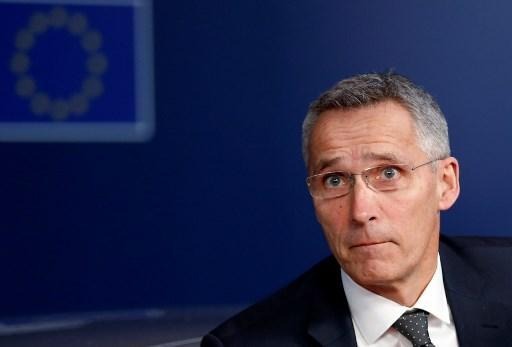The NATO Secretary General, Jens Stoltenberg, has indicated to the German press agency, Deutsche-Presse-Agenteur, that he expects more meetings between the NATO-Russia Council and Moscow during 2018. The relations between Moscow and NATO are at their lowest ebb, since the breakout of the Ukrainian crisis in 2014. However dialogue has been maintained through specific meetings within the NATO-Russia Council and Russia, at ambassadorial level (between NATO and Russia). The head of the Alliance says that meetings are likely to increase in frequency during the course of the next year.
Mr Stoltenberg explains, “I think that there will be more meetings and also greater use of these direct lines of military communication.” He backs this up by elaborating, “We are making progress both through political dialogue and using military lines of communication. The entire Alliance supports this progress.”
However, the strengthening of dialogue does not mean, for all that, the normalisation of relations. This was the view the US Secretary of State, Rex Tillerson, upon visiting NATO at the beginning of December. He rejected requests, in particular from Germany, for NATO to intensify its negotiations with Moscow. Mr Tillerson, desired that Russia firstly responds to Western concerns concerning both the Ukraine and the so-called “hybrid warfare” which is raging in the country.
However, Mr Stoltenberg insisted upon the importance of keeping channels of communication open with Russia. He emphasized, “On the one hand, we should provide an adequate response faced with a more aggressive Russia, on the eastern flank of the Alliance. That having been said, at the same time we do not want another Cold War. Neither do we want a new arms race. What we do want is political dialogue with Russia.” To conclude, the head of NATO mentioned, “Dialogue is not easy. However, Russia is our immediate neighbour, and it will remain so.”
NATO has suspended its practical cooperation, indeed military and civilian in equal measure, with Moscow, since the annexation of Ukraine’s Crimean peninsula, at the beginning of 2014. Ambassadorial meetings within the NATO-Russia Council and Russia framework are therefore the opportunity to discuss measures aiming to avoid misunderstandings, following increased military activity on both sides.
This framework body was created in 2002. The NATO-Russia Council and Russia met regularly before the Ukrainian crisis in 2014. Meetings resumed between both parties at the beginning of 2016. Six such meetings have taken place since April 2016.
The Brussels Times

